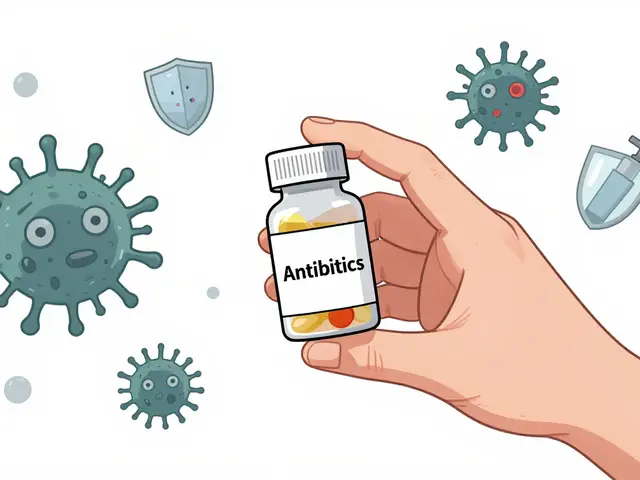Post-nasal Drip: Why Your Throat Keeps Clearing and What to Do
That tickle in the back of your throat, the constant need to clear your throat, or a sour taste from time to time — that’s post-nasal drip. It happens when excess mucus drains from your nose or sinuses down the back of your throat. Causes are usually simple: colds, allergies, sinus infections, dry air, or reflux. Knowing the cause makes it easier to fix.
Quick fixes and home remedies
Start with easy changes you can do today. Use a saline nasal rinse or spray to flush mucus and allergens out of your nose. Steam from a hot shower or a bowl of hot water loosens thick mucus; inhale slowly for 5–10 minutes. Run a humidifier while you sleep if your home is dry.
Drink plain warm fluids — tea or broth — to thin mucus and soothe your throat. Gargle with warm salt water to reduce irritation and temporarily remove mucus. Honey (a spoonful) can calm a sore throat; don’t give honey to infants under 1 year.
Over-the-counter options: a daily nasal steroid spray (fluticasone, budesonide) often helps allergy-related drip but can take a few days to work. Non-drowsy antihistamines (cetirizine or loratadine) reduce allergy-driven drainage. For short-term relief of severe nasal congestion, oral decongestants (pseudoephedrine) or topical sprays can help — but avoid nasal sprays for more than 3 days straight to prevent rebound congestion. Expectorants like guaifenesin may thin mucus and make it easier to clear.
When to see a doctor and medical treatments
If symptoms last more than three weeks, get worse, or come with fever, severe facial pain, blood in mucus, or breathing trouble, see a clinician. Persistent drip may need an exam to check for sinus infection, nasal polyps, deviated septum, or chronic rhinosinusitis. A doctor may prescribe antibiotics only if a bacterial sinus infection is likely. For reflux-related drip, treating GERD with lifestyle changes or acid-reducing medicine often helps.
Allergy testing and targeted treatment (allergy shots or prescription meds) can stop chronic cases. ENT specialists can offer nasal endoscopy or imaging if symptoms don’t respond to standard care.
Small habits matter: blow your nose gently (one nostril at a time), avoid smoking and secondhand smoke, wash bedding often if you’re allergic, and sleep with your head slightly elevated to reduce nighttime drainage. If over-the-counter steps don’t help after a week or two, book a visit — lingering symptoms are easier to fix when you catch them early.

As a blogger, I recently came across Bromhexine, a medication that has proven to be quite effective in treating post-nasal drip and persistent cough. I was amazed to learn that it works by thinning the mucus in the airways, which makes it easier to cough up and clear out. This not only helps to alleviate the discomfort caused by post-nasal drip, but also aids in reducing the frequency and severity of persistent coughs. I personally think that Bromhexine could be a game-changer for those suffering from these conditions. If you've been struggling with post-nasal drip or a persistent cough, Bromhexine might just be the solution you've been searching for!






